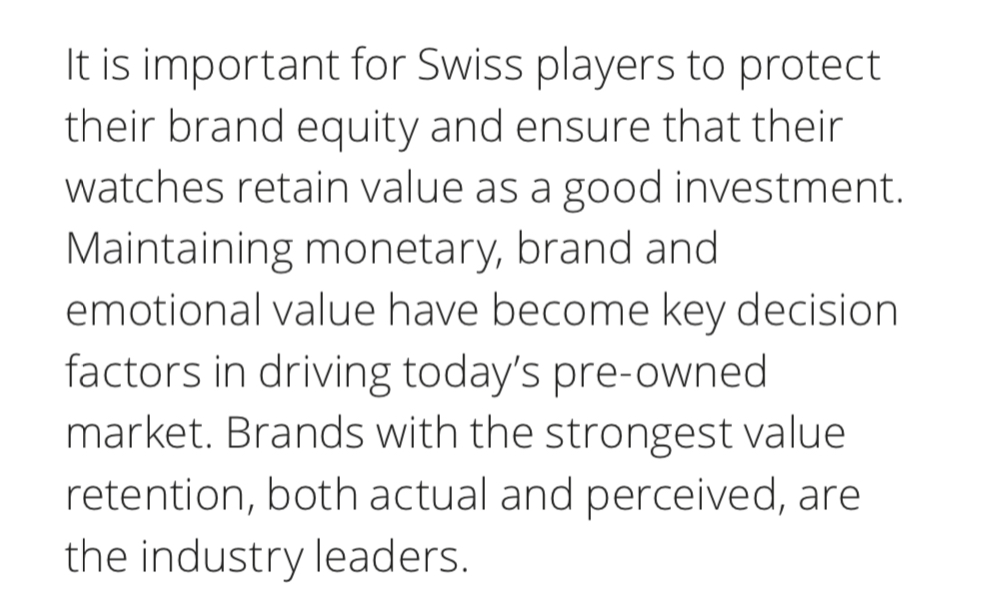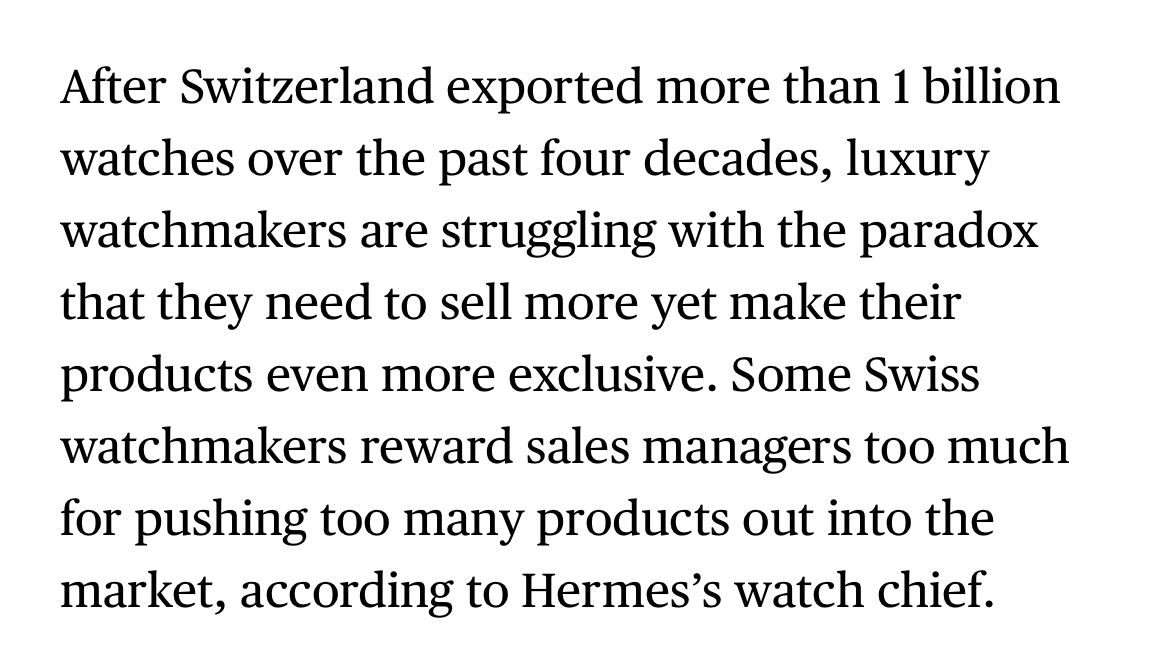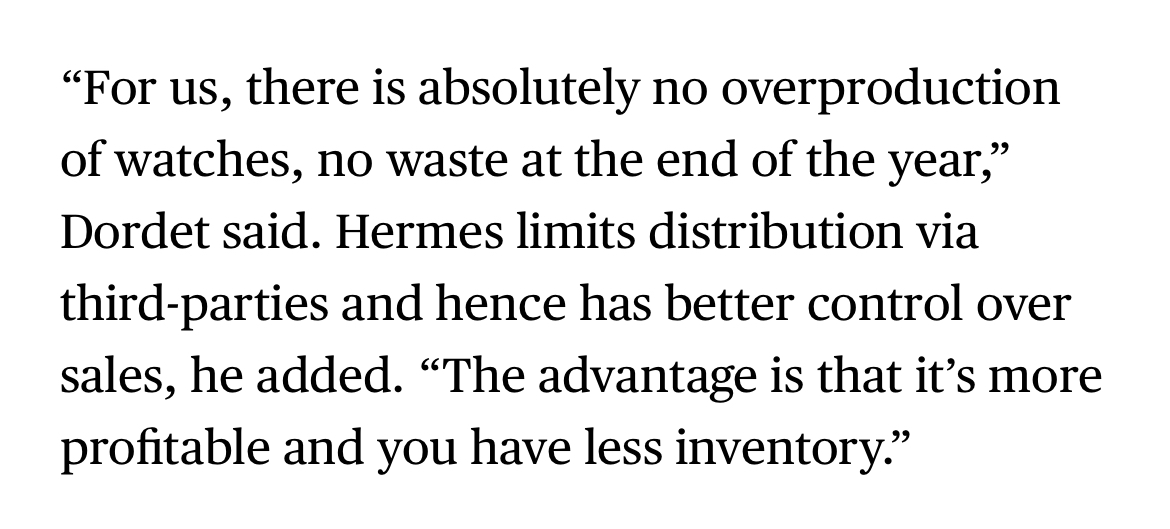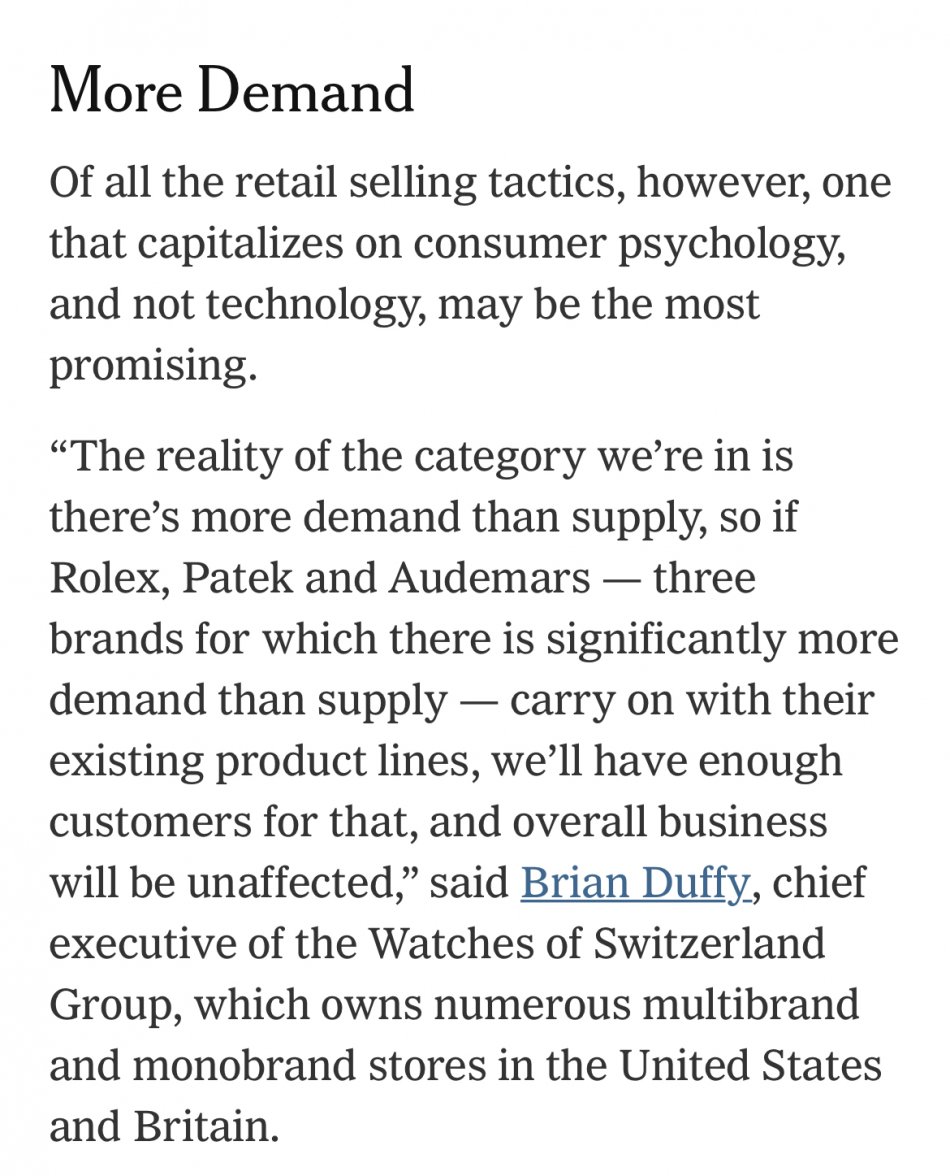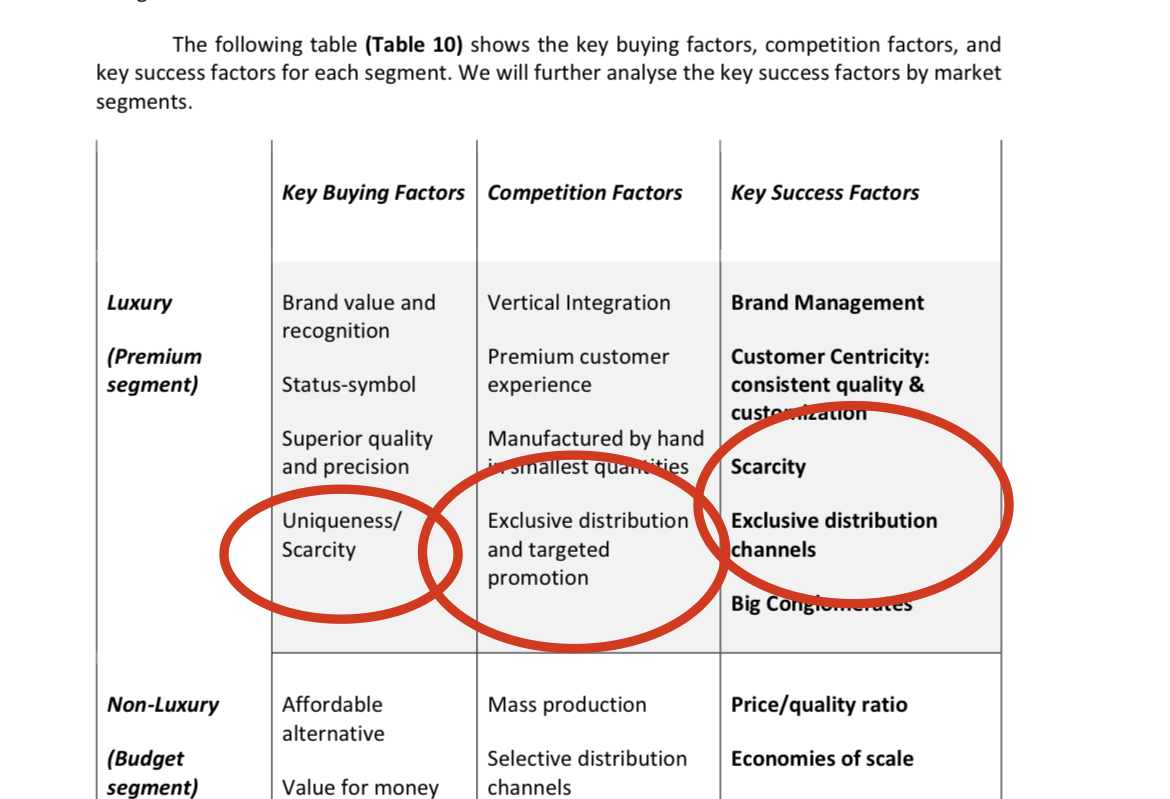So is this admitting now that the scarcity of Rolex is something they are purposefully engineering? Because my impression all along is that you have resisted this idea.
And just to address the straw men - no one is suggesting that it's a good idea to have a "glut" of products, but as I'm sure you know, there's a spot between "glut" and "empty shelves" that exists.
As for companies "losing their asses", well the Swatch group mid-year report would seem to contradict that narrative...
Swatch Group Half-Year Report 2021
Typical Archer dialogue of:
Me: it seems apples are often red
You: no, oranges are always
orange
but if you want to talk oranges:
So is this admitting now that the scarcity of Rolex is something they are purposefully engineering? Because my impression all along is that you have resisted this idea.
I suppose you could dig up some one-off post of haste that suggests otherwise, but no, in the main my thoughts in this subject have been consistently: throttling production is different from matching production to a desired demand ratio, doing so is not “evil” (least of all if it makes business sense), and disagreeing with the various versions of “if you make more watches you’ll make more money” claptrap
And just to address the straw men - no one is suggesting that it's a good idea to have a "glut" of products, but as I'm sure you know, there's a spot between "glut" and "empty shelves" that exists.
Funny
you call it a strawman, as it’s a strawman you’re here creating.
I did nowhere suggest that
you think a glut is a good idea
instead,
I was supporting
my assertion that the Swiss watch industry is uniquely negatively affected by any oversupply or stale inventory (see bullwhip analysis), and simultaneously uniquely positively affected by demand outstripping supply (see analysis variously above on this both curing the overstock problems, but also adding benefits to both obtaining and incrementally raising MSRP)
As for companies "losing their asses", well the Swatch group mid-year report would seem to contradict that narrative...
Two things:
First, exceptions don’t make rules
Second, Swatch group doesn’t even need to be an exception: over the past few years analysista have noted the company (1) narrowing its portfolio of offerings, (2) focusing on “heritage” piece marketing, (3) moving the company to DTC platform (in partial effort to address supply chain/inventory ails), and (4) having some successes at introducing high-demand/low availability marketing-leading pieces, in an apparent shift toward incorporating this brand strategy (as a compliment to DTC)
… which was basically my original point RE we shouldn’t be surprised to see Swiss watch manufactures having pieces that are very hard to get
